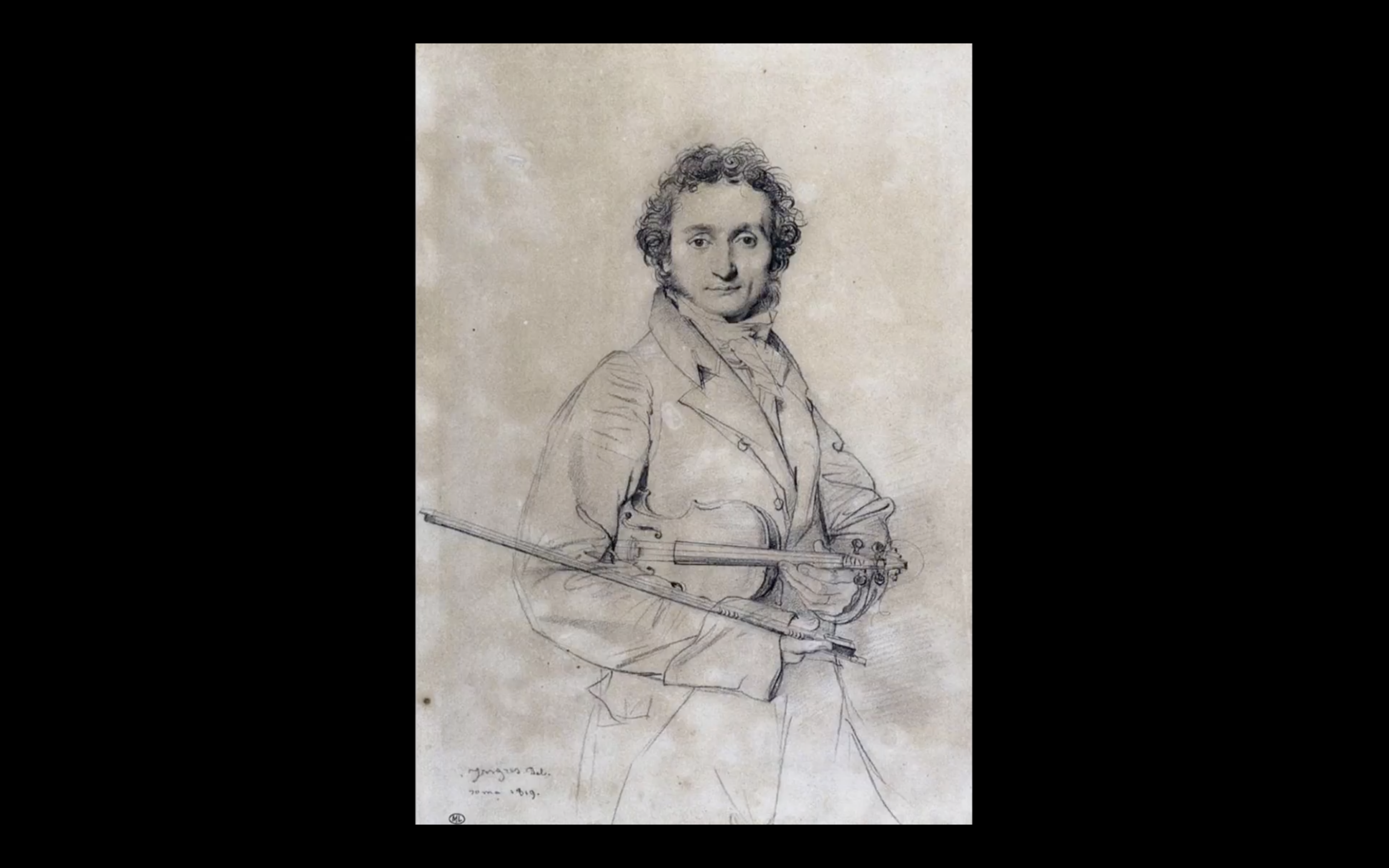Eric Seohyun Moon, Viola
N. Paganini : Caprice Op.1, No. 20
The 24 Caprices for Solo Violin were written in groups (six, six and twelve) by Niccolò Paganini between 1802 and 1817. They are also designated as M.S. 25 in Maria Rosa Moretti’s and Anna Sorrento’s Catalogo tematico delle musiche di Niccolò Paganini which was published in 1982. The Caprices are in the form of études, with each number exploring different skills (double stopped trills, extremely fast switching of positions and strings, etc.)
Ricordi first published them in 1820, where they were grouped and numbered from 1 to 24 as Op. 1, together with 12 Sonatas for Violin and Guitar (Op. 2 and 3) and 6 Guitar Quartets (Op. 4 and 5). When Paganini released his Caprices, he dedicated them “alli artisti” (to the artists) rather than to a specific person. A sort of dedication can be recognized in Paganini’s own score, where he annotated between 1832 and 1840 the following ‘dedicatee’ for each Caprice (possibly ready for a new printed edition): 1: Henri Vieuxtemps; 2: Giuseppe Austri; 3: Ernesto Camillo Sivori; 4: Ole Bornemann Bull; 5: Heinrich Wilhelm Ernst; 6: Karol Józef Lipiński; 7: Franz Liszt; 8: Delphin Alard; 9: Herrmann; 10: Theodor Haumann; 11: Sigismond Thalberg; 12: Dhuler; 13: Charles Philippe Lafont; 14: Jacques Pierre Rode; 15: Louis Spohr; 16: Rodolphe Kreutzer; 17: Alexandre Artôt; 18: Antoine Bohrer; 19: Andreas Jakob Romberg; 20: Carlo Gignami; 21: Antonio Bazzini; 22: Luigi Alliani; 23: [no name]; 24: Nicolò Paganini, sepolto pur troppo (to my self, regrettably buried).
Ferdinand David’s first edition was published by Breitkopf & Härtel in 1854. David, as editor, also issued an edition of Caprices with piano accompaniments by Robert Schumann. Another edition by David was issued in two books of 12 caprices each “mit hinzugefügter Begleitung des Pianoforte von Ferdinand David” (with additional piano accompaniment by Ferdinand David) and published by Breitkopf & Härtel (c. 1860).
Unlike many earlier and later sets of 24 pieces, there was no intention to write these caprices in 24 different keys.
Source : wikipedia.org

Comments are closed